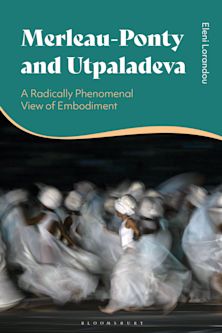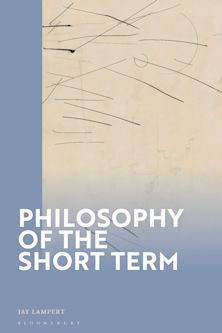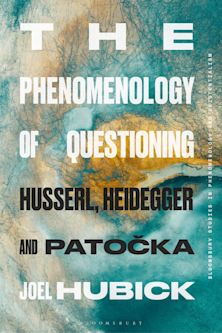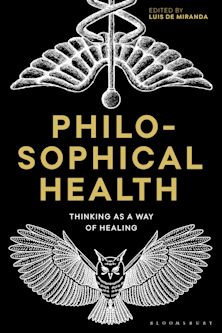- Home
- ACADEMIC
- Philosophy
- Phenomenology
- Confronting Heidegger
Confronting Heidegger
A Critical Dialogue on Politics and Philosophy
Confronting Heidegger
A Critical Dialogue on Politics and Philosophy
You must sign in to add this item to your wishlist. Please sign in or create an account
Description
The question of the relation of Martin Heidegger’s thought to politics has been a subject of controversy since the 1930s, when he became an advocate of the National Socialist regime in Germany. This volume addresses this question in a unique format, as a dialogue among leading Heidegger scholars. That dialogue begins with an exchange between Gregory Fried and Emmanuel Faye about Faye’s contention that Heidegger’s work represents nothing short of “the introduction of Nazism into philosophy.” At stake are issues such as what Heidegger himself understood Nazism to be, whether a thinker’s life and actions define the meaning of his work, the enduring threat of fascism, and the nature of rationality and philosophy itself. Richard Polt, Matthew Sharpe, Dieter Thomä, William Altman, and Sidonie Kellerer join the conversation, with responses from Fried and Faye.
Table of Contents
Chapter 1: A Letter to Emmanuel Faye, Gregory Fried
Chapter 2: From Polemos to the Extermination of the Enemy, Emmanuel Faye
Chapter 3: Wherewith to Draw Us to the Left and Right…: On Reading Heidegger in the New Millennium, Matthew Sharpe
Chapter 4: Reflecting with Heidegger, William Altman
Chapter 5: Un-Wesen: Tarrying with the Negative in Heidegger's Black Notebooks, Richard Polt
Chapter 6: The Imperative Mode of Heidegger's Thought, National Socialism, and Anti-Semitism, Dieter Thomä
Chapter 7: Philosophy or Messianism?, Sidonie Kellerer
Chapter 8: A Second Letter to Emmanuel Faye, Gregory Fried
Chapter 9: Against Heidegger's “Essential Right”: The Humanity Principle, Emmanuel Faye
Index
Product details
| Published | Oct 22 2019 |
|---|---|
| Format | Ebook (Epub & Mobi) |
| Edition | 1st |
| Extent | 304 |
| ISBN | 9781786611925 |
| Imprint | Rowman & Littlefield Publishers |
| Series | New Heidegger Research |
| Publisher | Bloomsbury Publishing |
About the contributors
Reviews
-
The prominent contributors to this timely and provocative volume critically reflect on and vigorously debate the significance of the deeply troubling fact that the thought of one of the most influential philosophers of the twentieth century was entangled in one of its most infamous and horrific political movements. At stake is nothing less than how—and, for some, even whether—we should continue to read Heidegger’s texts as contributions to philosophy.
Bret W. Davis, author of Zen Pathways: An Introduction to the Philosophy and Practice of Zen Buddhism
-
A common response today by both Heideggerians and those who believe that he should still be read as an important philosopher is that despite Martin Heidegger’s deep and even passionate involvement with Nazism and antisemitism, there is still much of philosophic importance and fruitfulness in his work. That view is both challenged and defended in this provocative collection, which needs to be read and confronted by all of us who propose to continue studying and teaching Heidegger.
Drew A. Hyland, Charles A. Dana Professor of Philosophy Emeritus, Trinity College, USA
-
The most important outcome in Heidegger research at least after the publication of the Black Notebooks, and as a consequence of the ensuing controversial philosophical-political debates, is a profound discussion about the methods employed in interpreting his work. To collect such different and serious contributions to this metaperspective is no small feat. It promises to loosen the gridlock of entrenched positions and it attains a new level of reflection.
Marion Heinz, Professor of Philosophy, University of Siegen, Germany
-
Over ten years in the making, this amazing book aims to achieve a genuine philosophical dialogue. Perhaps the scandal of Heidegger’s Nazism has reached a new stage for much of his readership. At first, it seemed that Heidegger made a political error, which he later regretted. Then it seemed that Heidegger had adopted his own personal form of Nazism that did not match orthodox Nazi beliefs. The third stage, presented in this book, is a debate between those who see genuine philosophical merit in Heidegger’s thinking and those who would consign it in toto to Nazi politics. These two sides have difficulty speaking to each other. Faye and his allies construe their reading of Heidegger as “reality” over and against the reading provided by “defenders of Heidegger,” which is certain to upset the latter. Fried and other contributors who recognize the importance of Heidegger’s philosophy explore the profound moral obstacles that come with working in the field of Heidegger studies. Neither side in this debate will be placated by this book, which is why everyone should read it.
Scott M. Campbell, professor and chairperson in philosophy, director of the American Studies Graduate and Undergraduate Programs in Arts & Sciences, Nazareth College
-
There is a venerable tradition going back to Plato which states that progress in philosophy may not mean answering questions, but instead clarifying why they cannot be answered. This volume should be measured by those standards. The generosity of its central interlocutors, their intellectual honesty, and willingness to experiment with unaccustomed forms of scholarly production reveal some of the fault lines in philosophy. What I see unfolding in the volume is a crossing of methodological boundaries.
Adam Knowles, Drexel University, Notre Dame Philosophical Reviews

ONLINE RESOURCES
Bloomsbury Collections
This book is available on Bloomsbury Collections where your library has access.



































